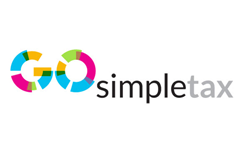
While it's unrealistic to expect any small business owner to have an in-depth knowledge of tax and National Insurance rules, here are some key facts you should know before you start up.
Income tax and NationaI Insurance for the self-employed
Self-employed people pay tax on their business profits (not their earnings). After filing a self-assessment tax return - which must be completed every year - tax is payable on profits generated during the preceding 12-month accounting period.
The self-employed must also pay National Insurance contributions (NICs). Class 4 NICs must be paid at 6% on profits between the lower profit limit of £12,570 and the upper limit of £50,270. Class 4 NICs are paid at the same time as your self-assessment tax bill.
Tax rules for limited companies
After they set up a limited company, as well as becoming a director, small business owners also become an employee of their company. They must pays income tax (as any other staff member) through PAYE (pay as you earn). The salaries of company directors are usually enhanced with dividends, which can provide a tax advantage. No tax is payable on the first £500 of dividend income. Income over this dividend allowance is taxed at 8.75% for basic rate tax payers, 33.75% for higher rate tax payers and 39.35% for additional rate payers. Tax and NICs are deducted via the company's payroll, which the employer must set up. The company must also pay employer's NICs for its staff.
The level of income tax for employees is decided by fixed income bands and is calculated over a fiscal year (starting 5th April). Wages falling within an employee's personal tax allowance are tax free. Thereafter, earnings above that allowance attract tax. The basic rate of income tax (20%) is payable on earnings of up to £37,700. A higher rate of income tax (40%) is payable on further earnings of up to £125,140 above the personal allowance. At £125,140 the rate increases to 45%. Most employees qualify for different forms of tax allowance, including the personal allowance of £12,570 (fixed up to and including 2025/26).
Corporation tax of 19% must be paid by most small businesses yearly on company profits up to £50,000. The main is 25% for businesses with profits over £250,000 a year. Marginal relief applies for profits between £50,000 and £250,000.
You (or your accountant) must work out how much Corporation Tax is due and pay the money to HM Revenue & Customs (HMRC), usually within nine months of company year-end.
 New tax year – new you
New tax year – new you
You can file your self-assessment from the 6th April. Know your tax owed and start the tax year in control.
For self-employed individuals, sole traders, or those with non-PAYE income, GoSimpleTax provides direct self-assessment filing with HMRC, offering helpful hints and savings tips throughout the process. Let GoSimpleTax handle all calculations.
Business expenses and tax allowances
If you've told HMRC you've started your business, you can claim most expenses incurred as pre-trading costs (exceptions include money spent forming a limited company).
There are strict rules about allowances, reliefs and legitimate business expenses. If you're self-employed, visit the HMRC website. The most common allowable expenses include: stock/materials, wages, premises costs, vehicle and travel, finance, administration, and professional fees.
When working out your tax bill, you can claim capital allowances on:
- plant and machinery (including vehicles, computers, equipment, tools, etc),
- fixtures and fittings for your premises,
- certain types of building.
The allowance is calculated as a fixed percentage of an item's value and is taken off that item's value each year. Capital allowances vary from a few per cent to 100%.
You can also claim the cost of using your own vehicle for business as an expense, either costed as a fixed mileage rate or actual expense. You can deduct from your taxable profits a proportion of some of your domestic overheads if you run your business from home. A word of caution: if you run a limited company and claim for vehicle use, it is classed as receiving a 'benefit in kind' for which income tax is payable, while the company incurs additional National Insurance.
If you're self-employed (ie a sole trader) and your business fails to make a profit, you can get tax relief by setting the loss against: other income from the same or previous year, business profit in subsequent years, or in the previous three years if your business ceases trading.
Value Added Tax rules
VAT is a transaction tax levied on sale of most goods and services. The standard rate is 20%. If your VATable turnover exceeds the registration threshold (£90,000 per annum) you must become VAT-registered. All VAT-registered businesses must comply with Making Tax Digital regulations. Even if your turnover is below the registration threshold, becoming VAT-registered can sometimes be financially beneficial for your business, providing your customers are VAT-registered (otherwise they'll simply have to pay more).
All businesses pay VAT on most purchases ('input tax'), while registered businesses charge VAT on their goods and services ('output tax'). VAT-registered businesses pay HMRC the difference between the output tax charged and input tax paid.
The above provides a brief introduction to the likely tax and National insurance. There's no substitute for professional advice from an accountant tailored to your specific circumstances.


